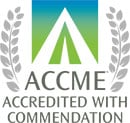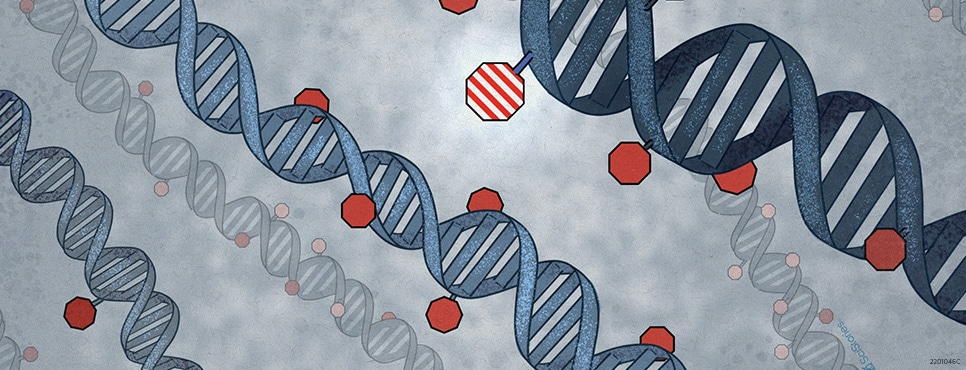Continuing Medical Education
Accreditation Statement

The American Association for Cancer Research (AACR) is accredited by the Accreditation Council for Continuing Medical Education (ACCME) to provide continuing medical education activities for physicians.
Credit Designation Statement
AACR has designated this live activity for a maximum of 13.25 AMA PRA Category 1 Credit(s) ™. Physicians should only claim credit commensurate with the extent of their participation in the activity.
Credit certification for individual sessions may vary, dependent upon compliance with the ACCME Accreditation Criteria. The final number of credits may vary from the maximum number indicated above.
Claiming (CME) Credit
Physicians and other health care professionals seeking AMA PRA Category 1 Credit(s)TM for this live continuing medical education activity must complete the online CME Request for Credit Survey by November 21, 2022. Certificates will only be issued to those who complete the survey. Your CME certificate will be sent to you via email after the completion of the activity.

Successful completion of this CME activity, which includes participation in the evaluation component, enables the participant to earn up to 13.25 Medical Knowledge MOC points in the American Board of Internal Medicine’s (ABIM) Maintenance of Certification (MOC) program. Participants will earn MOC points equivalent to the amount of CME credits claimed for the activity. It is the CME activity provider’s responsibility to submit participant completion information to ACCME for the purpose of granting ABIM MOC credit.
To receive ABIM MOC, participants must request MOC in the CME Request for Credit Survey and complete all questions. Once these steps are completed, AACR will submit your completion information via the ACCME’s Program and Activity Reporting System for the purpose of granting MOC points.
Statement of Educational Need, Target Audience, and Learning Objectives
Numerous reports suggest that aberrant epigenetic modification and subsequent gene transcription are critical in a variety of disease states including cancer. Such modifications are controlled by epigenetic “writers” (e.g., methyltransferases, acetyltransferases, ubiquitin ligases, etc.), “readers” (e.g., bromo, chromo, TUDOR, and PHD domain proteins) or “erasers” (demethylases, deacetylases, etc.). In a cancer context, drugs that modulate the activities of these epigenetic modifiers could lead to either silencing of oncogenes and/or reexpression of tumor suppressor genes. In addition, the profile of these epigenetic target genes could be used as a prognostic for patient selection and/or pharmacodynamic marker of response to epigenetically targeted therapeutics. Recent whole-genome sequencing of thousands of human cancers has uncovered an unexpectedly large number of mutations in genes, which control the epigenome. Many of these recurrent mutations are in epigenetic writers (e.g., EZH2, DNMT3a), readers (BRD4-NUT fusions), erasers (UTX mutations), and chromatin remodeling enzymes (BAF subunits of SWI/SNF). They occur at high frequencies and may therefore be drivers of carcinogenesis, which is supported by functional data in some cases. The data have reemphasized the role of epigenetics in human cancer and pointed to a much closer collaboration between genetic and epigenetic events in carcinogenesis (1). The realization of the commonality of epigenetic pathways in neoplasia has opened the door to the development of drugs that will target these defects and likely be therapeutic for specific types of cancers. There is therefore a need to map both the genetic and epigenetic landscapes in cancers to provide a backdrop for the rapid development and deployment of new epigenetically targeted therapies.
Understanding epigenetic processes is critical to understanding how to harness its potential as a therapeutic target in the clinic. Mapping of cancer epigenomes with the aim of developing an integrated understanding of the cross-talk between genetic and epigenetic changes will facilitate patient benefit through the selection of appropriate targets for drug discovery and development. This conference will not only address the need to understand the underlying biology of these processes but will also discuss the development of current epigenetic therapies for cancer and the growing emphasis on targeting the epigenome. This conference will provide a venue to synthesize concepts from biology to clinical applications.
After participating in this CME activity, physicians should be able to:
- Explain current research on epigenetic pathways in neoplasia
- Provide examples of epigenetic modulation in the development of cancer
- Identify examples of DNA methylation and chromatin cross-talk and their role in cancer
- Assess the role of noncoding RNA’s in driving in cancer phenotypes
Disclosure Statement
It is the policy of the AACR that the information presented at AACR CME activities will be unbiased and based on scientific evidence. To help participants make judgments about the presence of bias, AACR will provide information that Scientific Program Committee members and speakers have disclosed all financial relationships they have with ineligible companies whose primary business is producing, marketing, selling, re-selling, or distributing healthcare products or services used by or on patients. All of the relevant financial relationships for these individuals have been mitigated.
Acknowledgment of Financial or Other Support
This activity is supported by Professional Educational Grants which will be disclosed at the activity.
Questions about CME?
Please read our frequently asked questions. If you still have questions, please contact the Office of CME at (215) 440-9300 or cme@aacr.org.
